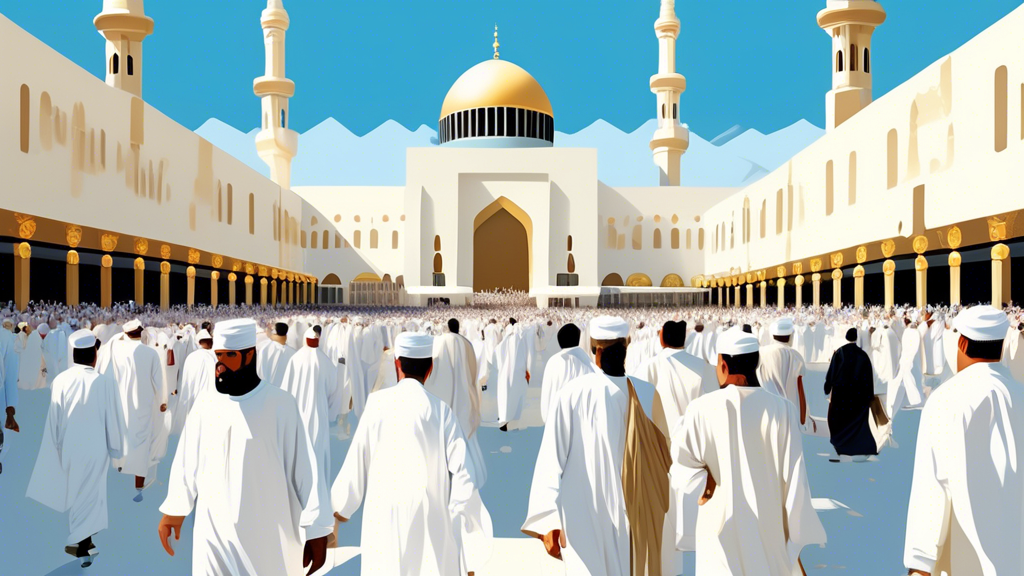Introduction to Hajj
Hajj, one of the five pillars of Islam, is the annual Islamic pilgrimage to the holy city of Mecca in Saudi Arabia. It is a mandatory religious duty for Muslims that must be carried out at least once in their lifetime by all adult Muslims who are physically and financially able to undertake the journey, and can support their family during their absence. The pilgrimage occurs from the 8th to 12th (or in some cases 13th) of Dhu al-Hijjah, the last month of the Islamic calendar.
Spiritual Significance of Hajj
Hajj holds immense spiritual significance for Muslims worldwide. It represents the unification of Muslims, from every culture, race, nationality, and social status, in worship and devotion to Allah. The rites of Hajj include circulating the Kaaba seven times, and walking between the hills of Safa and Marwah, as a reenactment of Hagar’s desperate search for water for her son Ishmael. This act of faith commemorates the rituals of the prophets Ibrahim (Abraham) and Ishmael, and highlights the themes of sacrifice, trust in God, and submission to divine will.
The Rituals Involved
The Hajj pilgrimage is packed with rituals that start upon entering the state of Ihram, a state of spiritual purity and devotion where pilgrims must adhere to several prohibitions such as not engaging in marital relations, not shaving or cutting their nails, and not engaging in disputes or fights. The core rituals include performing Tawaf, where pilgrims circumambulate the Kaaba seven times in a counterclockwise direction, and the Sa’i, walking seven times between the hills of Safa and Marwah. Another significant ritual is the Day of Arafat where pilgrims stand in vigils near the Mount of Arafat, seeking God’s mercy and forgiveness.
The Day of Sacrifice
Following the Day of Arafat is Eid al-Adha, also known as the Festival of Sacrifice, coinciding with the last three days of Hajj. Pilgrims participate in the ritual of Qurbani, simulating the sacrifice Ibrahim was willing to make of his son Ishmael under God’s command. This act, which is also carried out by Muslims worldwide who are not on the pilgrimage, underscores the virtues of obedience and surrender to the divine will.
Conclusion
The pilgrimage to Mecca for Hajj is a profound spiritual journey that encapsulates the depth of devotion and unity in the Islamic faith. Its rituals foster a sense of equality and brotherhood among Muslims, and provide a rare opportunity for deep self-reflection and spiritual renewal. Through the shared experience of Hajj, pilgrims connect with their faith in the most profound way, retracing steps taken by figures central to Islamic history and embodying the universal principles of sacrifice, worship, and submission to Allah.
